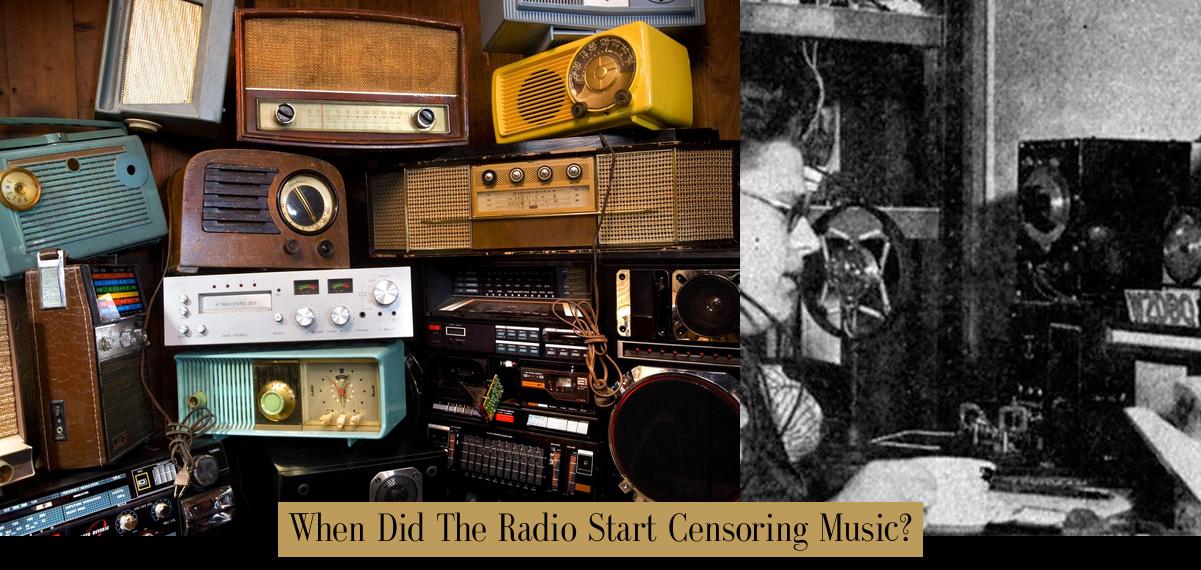When Did the Radio Start Censoring Music? A Journey Through the Decades of Beep-Boop and “That’s Too Spicy for the Airwaves”
Let’s be honest, folks. We’ve all been there. You’re jamming out to your favorite song, and suddenly, the radio station throws a big ol’ “beep” over the word “damn” or “hell.” It’s like someone threw a wet blanket over your musical high. You might be wondering, “When did this radio censorship thing start anyway?” Well, buckle up, music lovers, because we’re about to take a trip down memory lane, exploring the history of radio censorship and how it’s shaped the music we hear today.
The Golden Age of Radio: Where Censorship Was More Like a Polite Suggestion
Hold onto your hats, folks, because we’re going back to the roaring twenties. The radio was brand new, and everyone was captivated by this magical box that brought music and news into their homes. But back then, the idea of radio censorship wasn’t as strict as it became later. Think of it as a “no swearing at the dinner table” kind of situation. It was more about maintaining a certain level of decorum and avoiding anything that might be considered offensive to the general public.
The Rise of the FCC: “We’re Not Your Parents, But We’re Watching You”
Fast forward to the 1930s, and the Federal Communications Commission (FCC) enters the scene. These folks were tasked with regulating broadcasting, and their mission was to ensure that the airwaves were clean and suitable for all audiences. They cracked down on anything considered obscene, profane, or indecent, and radio stations were suddenly faced with a whole new set of rules.
Rock and Roll: “It’s a Whole New Ballgame, Baby”
The 1960s saw the explosion of rock and roll, and with it, a whole new wave of music that challenged societal norms. Suddenly, songs were dealing with themes of sex, drugs, and rebellion, all things that the FCC had a problem with. The FCC began to actively ban songs that they deemed too provocative, and radio stations started to self-censor to avoid any potential trouble.
A Bit of a Bleeping History: “Louie Louie” and the “Obscenity” Debate
One of the most famous examples of this era is the song “Louie Louie” by The Kingsmen. This song, which many considered harmless, was banned by several radio stations because of its “obscenity.” The lyrics were so ambiguous that the FBI even launched an investigation to determine if they were truly pornographic. Ultimately, the song was cleared, but this case shows how easily rock and roll could fall foul of censorship.
Beyond the Music: A Wider World of Censorship
While music censorship is often the focus, it’s important to remember that radio censorship has extended to other areas, like political commentary and social issues. The FCC has been known to crack down on radio stations that air controversial content, leading to accusations of censorship and suppression of free speech.
A Modern Perspective: “Is Censorship Really Necessary?”
Today, the debate about radio censorship continues. Some argue that it’s essential to protect children and maintain a certain level of decency on the airwaves. Others argue that it’s a form of censorship that stifles creativity and restricts free speech.
The Bottom Line: A Song’s Journey Through the Airwaves
So, when did the radio start censoring music? It’s a journey that began in the early days of broadcasting and continues to this day. While we may not always agree with the reasons for censorship, it’s undeniable that it has played a significant role in shaping the music we hear today. From the cautious “no swearing at the dinner table” approach of the early days to the stricter regulations of the FCC, music has constantly been navigating the ever-changing landscape of censorship.
So, next time you hear that bleep on the radio, remember that it’s just a small part of a much larger story. It’s a story of how music has been shaped by societal norms, cultural shifts, and the constant battle between free speech and the desire for a clean and safe airwaves.
And who knows, maybe someday we’ll all be singing along to a song with the word “damn” in it, without a single bleep in sight. But until then, we’ll just have to keep on enjoying the music, with all its imperfections and bleeps, and all.
